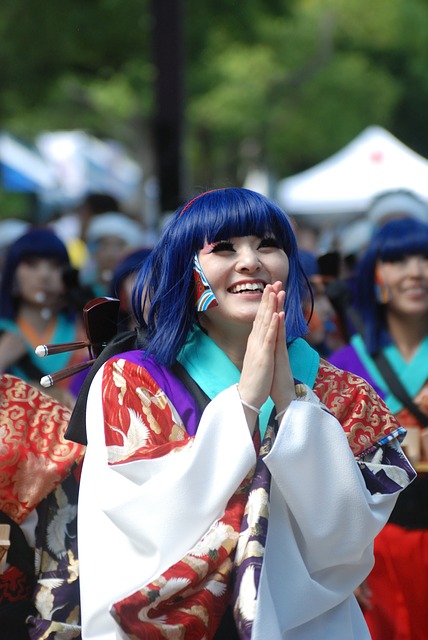
Study in Japan
Geography and Demographics
Japan is a small and mountainous island nation, but one of huge regional differences. Before modern roads, rails, and bridges, Japan’s many populations were cut off from each other. Strong regional identities with their own dialects, cuisine, festivals, and specialties emerged over centuries. The Japanese are quite proud to share the unique aspects of their local culture, particularly to travelers coming through town.
Food
Japan has a relatively high cost of living, however, there are ways to live cheaply in Japan. In Japan, it’s possible to eat very well on a budget. The value of the yen has recently begun to edge back down, though, so Japan is actually more affordable lately than it has been in years.
Enrolling a Japanese language institution
Higher educational institutions in Japan, in principle, conduct all their classes in Japanese with only a limited number offering classes in English . It is extremely important, therefore, that international students wishing to study in Japan have an adequate knowledge of the Japanese language. For this reason many international students study the language in Japan for six months to two years before applying to higher educational institutions for admission. In almost all cases, the qualification for entering an institute providing Japanese-language education is to have completed at least 12 years of school education or to have attained an equivalent level of academic ability.
Entrance Requirements
Applicants must satisfy the following requirement
- Have completed at least 12 years of formal education in their home country.
- Students completed 150 hours of Japanese language classes.
- Must have passed NAT, TOP-J or J-TEST that is equivalent to JLPT level 5 examination .
- Sound economic background.
Immigration Procedures
A person who wishes to enter Japan as an international student must complete the following procedures:
- Secure admission to a Japanese educational institution(Japanese-language institute, junior college, university, etc.).
- Posses home country’s passport.
- Acquire a visa at a Japanese Embassy or Consulate in home country.
Part-time Work
About 76% of international students having the “College Students” status of residence are working part-time, a large portion works in the foodservice industry, followed by sales and marketing, language teacher, clerical work, and others.
The hourly wage varies according to locations but those working in food services are getting about ¥800 to ¥1200 an hour. Assuming that the maximum of 28 hours a week is fully used up to work; their earning will be around ¥22,400 to ¥33,600.
To work part-time, you must first obtain your school’s consent and receive the approval to engage in activities outside the scope of your status of residence from the nearest Regional Immigration Bureau. Upon obtaining these approval you may work part-time under the conditions that.
Working part-time without having necessary approvals, exceeding the permitted number of hours or working outside of the permissible scope will get you penalized and/or deported.
- the part-time work does not affect your studies
- the earned income is meant to supplement your academic cost and necessary expenses and not for saving or for remittance overseas
- the part-time work engaged in is not in adult entertainment businesses
Life
- Medical Insurance
Foreigners who will be staying in Japan for a period of more than 1 year have to subscribe to the “National Health Insurance”.The insurance premium has to be paid monthly once registration is completed. The premium varies according to local councils and one’s income. However, most of the time, the premium is about JPY20,000 per year.Once registered with the National Health Insurance, you will only need to pay 30% of the total medical bill. When receiving treatment for injuries or illnesses, you have to present your insurance card to be eligible for the discounted payment.Take note that the medical cost for treatments not covered by the insurance scheme has to be paid in full at your own expense. - Accomodation
Accommodations for international students are diverse. About 76.8% of international students are staying in private housing. When looking for private housing, you can inquire from your school’s international student office or you may get a real estate agent to look for a place in the area you plan to stay in.Japanese lifestyle and housing has become more westernized throughout the years. Enduring these changes, Japanese still remove their shoes at the main entrance and many houses still maintain the multi-purpose room called the Washitsu(Japanese room)Though most rooms are not furnished, those facing south or with windows on the east side fetches higher rent because it is warmer and brighter. Other determining factors are its distance from the train station and age of the building. The “shiki-kin” (returnable deposit) and “rei-kin” (non-returnable fee) system differ by area. When the rental contract is signed, the rent,”shiki-kin” and “rei-kin” equivalent to a few months of rent must be pain. - Further Study
After graduation from the Japanese Language School, you can continue your study in the following areas
Universities and Junior Colleges in Japan
Graduate Schools
Fascinating Culture
Japan has a history of over 2,000 years. Traditional culture includes zen, kabuki, sumo and other fascinating aspects with a truly global appeal. These days, Japan is also attracting worldwide attention with its cutting-edge culture of comics, animation, music (such as J-pop) and fashion. You’ll have plenty of opportunities to sample the best of Japanese culture while you study in Japan. Japan has the power to make a deep and positive impression. Everyday life will become just as meaningful for you as your studies!
Life in Japan is safe and convenient. Public safety is outstanding and Japan’s low crime rate is the envy of the world. Medical technology is advanced and you’ll find robust medical systems in place. Public transportation is extremely punctual; travel is reliable and convenient. There are also convenience stores which are open 24 hours a day.
